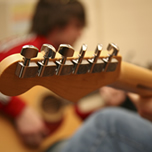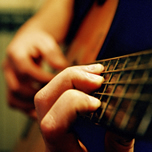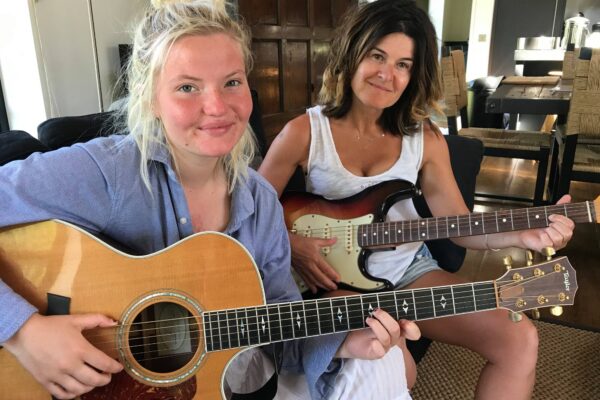
Most Joyful Thing You Do
Why Learning Guitar as an Adult Might Be the Most Joyful Thing You Do
Learning guitar isn’t just for teenagers with garage bands or young prodigies on YouTube. In fact, more adults than ever are picking up the instrument, discovering not just a musical skill, but a deeply fulfilling and joyful journey. Whether you’re 30, 50, or 70, learning guitar as an adult offers benefits that extend far beyond music.
In this uplifting, SEO-rich guide, we explore why learning guitar as an adult can be one of the most rewarding decisions you ever make. We’ll cover emotional well-being, mental health, community, self-expression, goal-setting, and even brain training. Plus, we’ll provide practical advice, sample routines, and motivational techniques to help you thrive as an adult guitarist.
1. You’re Learning for You – Not for Grades or Parents
One of the greatest advantages adult learners have is motivation. Unlike children who may learn because they’re told to, adults choose to play guitar out of genuine passion, curiosity, or personal goals.
This intrinsic motivation often leads to:
- More consistent practice
- A deeper emotional connection to the music
- Greater patience and persistence
Whether you’re dreaming of strumming your favourite Beatles song, writing your own music, or jamming with friends, your “why” is yours alone—and that’s powerful.
2. It’s a Form of Meditation and Mental Wellness
Learning and playing guitar is incredibly therapeutic. The concentration required to play chords, practice scales, or learn new songs forces your mind to stay present, creating a state of flow similar to meditation.
Benefits include:
- Reduced stress and anxiety
- Enhanced mindfulness
- Boosted mood and emotional release
Many adult learners describe their daily guitar practice as a calming ritual that anchors their day. In a world full of distractions, this mindful musical moment can be life-changing.
3. Playing Music Builds Confidence at Any Age
Every new chord learned, every song mastered, is a small win—and those add up.
Guitar offers continuous moments of growth:
- Overcoming a tricky barre chord
- Learning to fingerpick
- Memorising a full song
Each accomplishment reinforces the truth that it’s never too late to learn, grow, and surprise yourself.
4. It Keeps Your Brain Sharp
Numerous studies show that learning a musical instrument improves cognitive function. For adults, this means:
- Improved memory and concentration
- Increased hand-eye coordination
- Delayed onset of age-related cognitive decline
Guitar learning requires your brain to multitask: read music or tablature, coordinate both hands, and listen critically. It’s like a full-body workout for your brain.
5. Music Connects You with Others
Guitar can be a solo pursuit, but it often leads to new social connections. As an adult, you can:
- Join local jam nights or open mics
- Take online or in-person lessons with a group
- Play music with family members or friends
Learning guitar builds bridges. It can even help you form or deepen relationships through the universal language of music.
6. Self-Expression at Its Finest
As adults, we don’t always get the chance to express ourselves creatively. Guitar gives you that outlet.
You can:
- Write your own songs
- Play covers that reflect your emotions
- Improvise and explore different genres
Expressing your emotions through music is not only healing but can also be incredibly liberating. It’s your voice in six strings.
7. You Set the Pace
Adult learners often have busy lives. The good news? You get to choose how and when you learn.
You can:
- Learn through YouTube tutorials
- Take structured online courses
- Work with a private teacher at your pace
There’s no rush. Whether it’s 10 minutes a day or a few hours a week, consistency matters more than quantity.
8. Technology Makes Learning Easier Than Ever
With apps, virtual tuners, video lessons, slow-down tools, and online communities, adults have more access to quality learning resources than ever before.
Top tools for adult beginners:
- JustinGuitar (free structured lessons)
- Fender Play (subscription-based learning)
- Yousician (interactive practice app)
- Ultimate Guitar (chord and tab library)
These platforms are flexible and often tailored for adult learners who want progress, not pressure.
9. It’s a Creative Escape from Daily Stress
From the moment you pick up your guitar, you step into a world of rhythm, melody, and expression. It becomes a form of escapism—a break from emails, to-do lists, and responsibilities.
Even just 15 minutes can:
- Clear your mind
- Boost creativity
- Improve your mood
The guitar becomes a refuge—your private creative haven.
10. You Don’t Need to Be a “Natural” to Succeed
Forget the myth of “natural talent.” Most adult guitarists improve through steady, focused effort. In fact, adults often have better attention spans and problem-solving skills than younger learners.
What matters most:
- Consistency over speed
- Enjoyment over perfection
- Progress over comparison
Anyone can learn guitar. Truly. And the joy lies in the journey.
Goal-Setting and Progress Tracking for Adults
The secret to sustained progress as an adult guitarist? Smart, structured tracking.
Step 1: Clarify Your Why
Do you want to:
- Sing and play your favourite songs?
- Write original music?
- Perform live one day?
Your “why” shapes your journey. It’s your compass.
Step 2: Set SMART Goals
Turn vague ambitions into measurable targets:
- Specific: Learn “Wish You Were Here” by Pink Floyd
- Measurable: Play at 80 bpm cleanly
- Achievable: Within your level
- Relevant: You love the song
- Time-bound: Master it in 3 weeks
Step 3: Keep a Guitar Journal
Track:
- What you practiced
- How long
- What improved
- What needs work
This helps you see patterns and breakthroughs.
Step 4: Use Video for Honest Feedback
Record once a week. Compare monthly. Celebrate growth.
Step 5: Micro Goals = Macro Progress
Small wins compound:
- Smooth chord switches
- Holding barre chords for 30 secs
- Playing a full verse fluently
A Sample Monthly Plan for the Busy Adult Guitarist
Week 1:
- Goal: Learn fingerpicking pattern from “Dust in the Wind”
- Daily: 20 mins pattern, 10 mins chord drills
Week 2:
- Goal: Increase speed
- Daily: Practice with metronome, video log
Week 3:
- Goal: Play entire song
- Daily: Combine sections, review weak spots
Week 4:
- Goal: Record performance
- Daily: Light practice + polish expression
Real-Life Inspiration: Sarah’s Story
Sarah, a 42-year-old corporate trainer, began learning guitar during lockdown. In 6 months she:
- Learned 5 core chords
- Practiced over 60 times
- Played “Fast Car” live at her local pub
- Gained confidence, community, and creativity
Her success? She tracked progress, stayed consistent, and celebrated each win.
Final Chord: It’s Never Too Late to Feel the Joy
Learning guitar as an adult isn’t about chasing perfection. It’s about joy, expression, and proving to yourself that growth never stops.
So pick up that guitar. Let the music guide you. Let every chord be a celebration of your journey. Whether you play for peace, passion, or purpose, remember: the joy is in the strumming, the stumbling, and the surprising moments of brilliance.
You’re more than capable. You’re already on your way.







